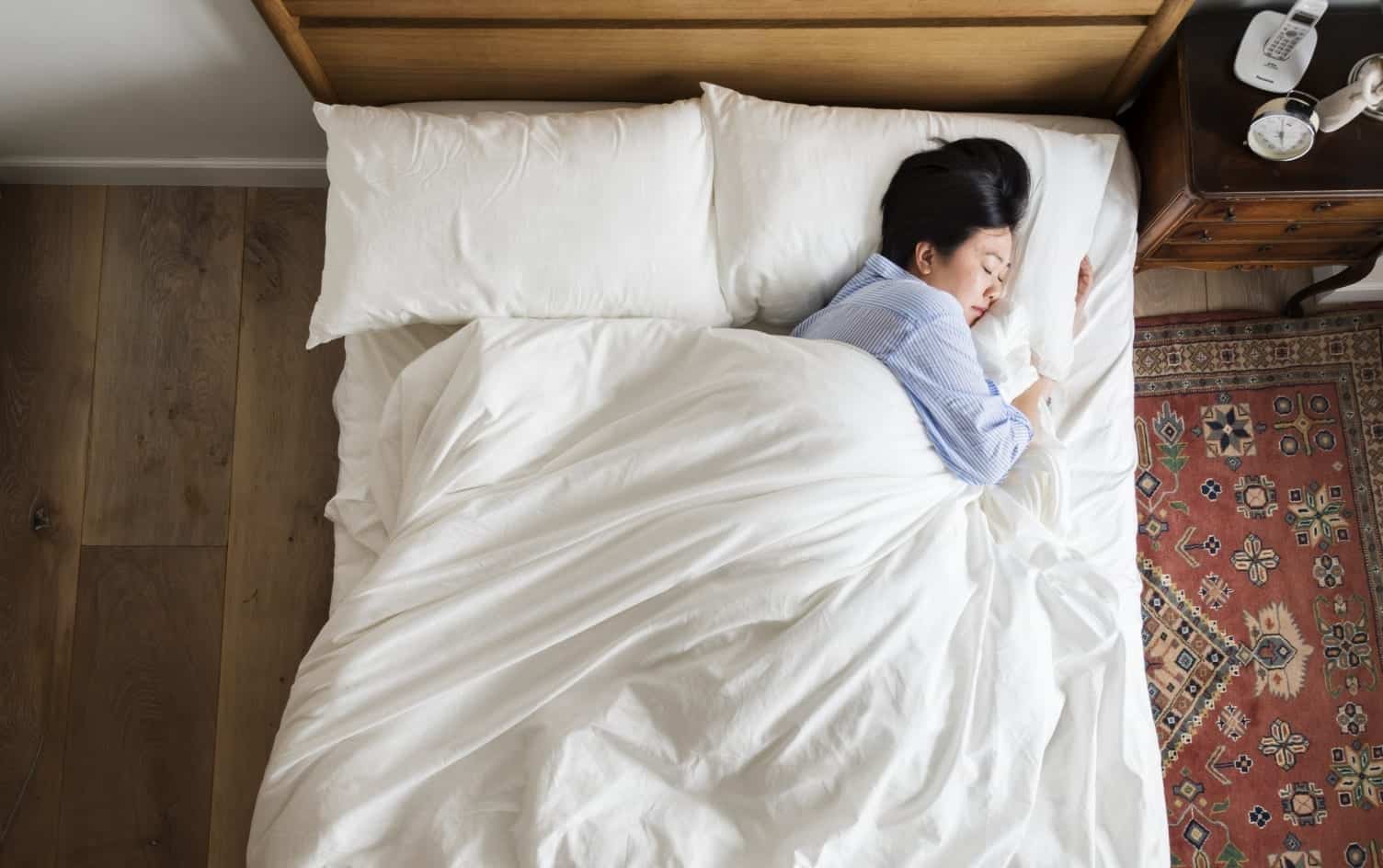There will likely always be a “next big thing” when it comes to products designed to help you sleep better — from alarm clocks that simulate natural light to a “tranquility pod” that gently massages you during the night — but one that has potential to go beyond the gimmicks is a weighted blanket.
Blankets are usually designed to be warm, and some manufacturers take pride in how light blankets can be while still providing that warmth. But weighted blankets, sometimes called gravity blankets, go in the other direction. They’re filled with a material like tiny plastic pellets that increase the weight, sometimes up to 25 pounds.
Let’s take a look at why these might help people sleep better — along with a few caveats to keep in mind.
MORE WEIGHT, MORE BENEFITS
Scientific research on weighted blankets is limited, but there is some evidence these blankets can be helpful to ease anxiety and lower stress, which can help people fall asleep faster and get back to sleep if they wake up in the middle of the night.
In one 2008 study, researchers recruited 32 participants to rest under a 30-pound blanket for five minutes. The majority of them said they felt more relaxed right away and would use the blanket as a calming technique, although three said they felt more anxious.
Another study used a similar number of participants but was more comprehensive in tracking sleep over a month. Those who participated all reported chronic insomnia — most because of shift work — and used their regular bedding for a week, followed by two weeks with weighted blankets, followed by another week of regular bedding.
Four out of 5 participants slept longer and woke up less often with the weighted blankets, according to sleep tests. They also noted it felt easier to fall asleep and they felt more refreshed in the morning. The researchers concluded this was likely because weighted blankets provide deep pressure that’s evenly distributed throughout the body, an effect that’s been shown to help lower heart rate — similar to feeling calmer when being hugged.
Study coauthor Dr. Gaby Badre, of the University of Gothenburg in Sweden says, “This pressure provides a reassuring and cocooning feeling that can lead to a decrease in movements during sleep, which improves sleep quality.”
He recommends a blanket that’s more than 10% of your bodyweight, but some people tend to prefer even heavier blankets.
NOT ONE SIZE FITS ALL?
What happens if you buy a weighted blanket, crawl underneath hoping for an amazing night of sleep and don’t experience a difference? Don’t worry, it’s not you. Sometimes, it’s just not a good match.
While it’s true there can be advantages to these blankets, that doesn’t mean it works for everybody. Some people actually don’t like the heaviness, especially if they have issues with mild claustrophobia.
In general, these blankets seem best for those who struggle with sleep due to emotional factors like anxiety or stress, as opposed to sleep issues related to other factors like prescription medication usage, sleep apnea or improper sleep cycles.
This type of blanket may also be inappropriate for young children, elderly people or those with breathing issues and circulatory problems.
THE BOTTOM LINE
In general, that means the answer to the question of whether weighted blankets might help you sleep is … maybe. But that’s the answer for many sleep-related products and strategies, according to W. Christopher Winter, president of Charlottesville Neurology and Sleep Medicine and author of “The Sleep Solution.”
Simply put, some tactics or gadgets work like a dream for some people and not others. For example, you might get deeper sleep with a white-noise machine, while someone else could find that investment to be a waste. The reason so many products — like weighted blankets — exist is sometimes you have to figure out what would be a fit for your needs.
“Sometimes, people think a certain sleep strategy or product will work for them because it’s commonly accepted as helpful,” says Winter. “They get frustrated when it’s not working, because they think they’re doing things wrong. But sleep strategies are very personal. You have to play around with them a little.”




